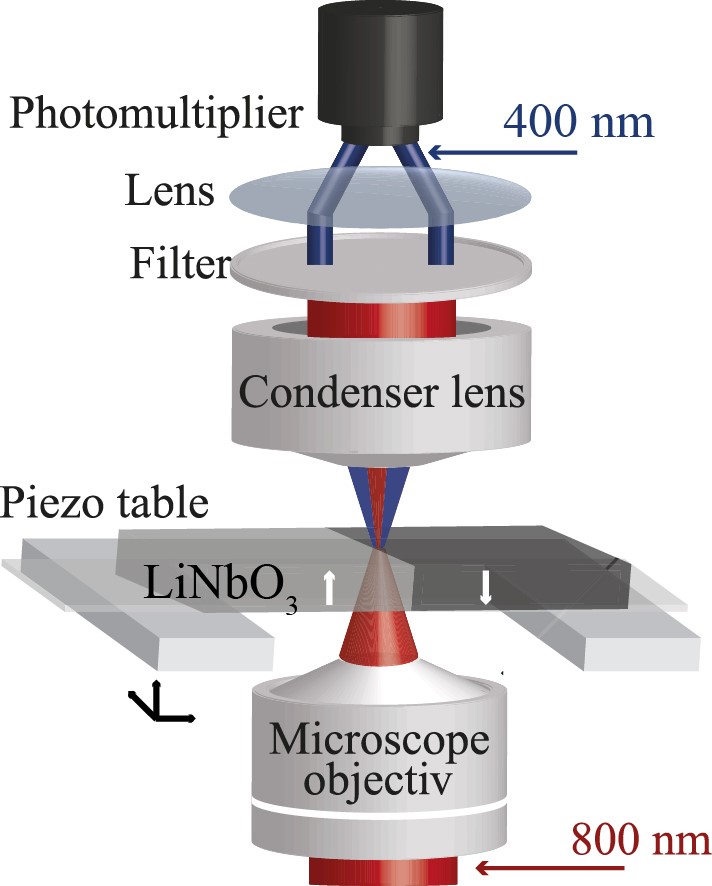Optical Nonlinear Microscopy
Effects of tightly focusing in nonlinear materials

In the group ‚Nonlinear Photonics‘, we investigate new concepts in the field nonlinear optics. We are working on visualizing of nonlinear structures in nonlinear crystals in all three dimensions using a new nondestructive microscopic technique called „Čerenkov second harmonic microscopy“. These structures are invisible for the conventional linear optical methods. In this method, ultrashort infrared laser pulses are tightly focused in a transparent nonlinearly structured material. A frequency doubled signal is subsequently generated. The signal is then detected with a photomultiplier. This signal fulfills a special phase-matching condition which is satisfied automatically and exclusively on the boundaries of nonlinear structures. Utilizing this properties, nonlinear structures can be imaged in all-three dimensions by scanning the crystal layer by layer in high resolution using 3-axis microscopic table moving in all-three dimensions with steps of 200 nm.
Since the nonlinear crystal possess certain spatial symmetries, e.g. uniaxial, the beam propagating in the investigated crystal, experiences several modifications, as linear birefringence. Such effects have an immediate impact on the imaging of the structures. This interplay of the linear and nonlinear effects is of enormous interest not only in the microscopy, but also everywhere, where the focusing is used in such crystals, as for example “direct laser writing”.
Masterthesis
Effects of tightly focusing in nonlinear materials: In this thesis, the tightly focusing will be investigated in uniaxial nonlinear crystals. Especially the influence of the light polarization of the focused pulses in both linear and nonlinear regimes should be examined. The experimental results should be supported by numerical calculations.
This Master thesis is organized thematically into the ongoing research of the "nonlinear optics" team of the group of Nonlinear Photonics. In our team, Master, PhD students and Postdocs discuss frequently about results, problems, scientific related articles and new ideas. We are looking for committed students who are interested in nonlinear photonics and want to work on current research.
Contact: Interested students may contact Dr. Mousa Ayoub or Dr. Jörg Imbrock.

